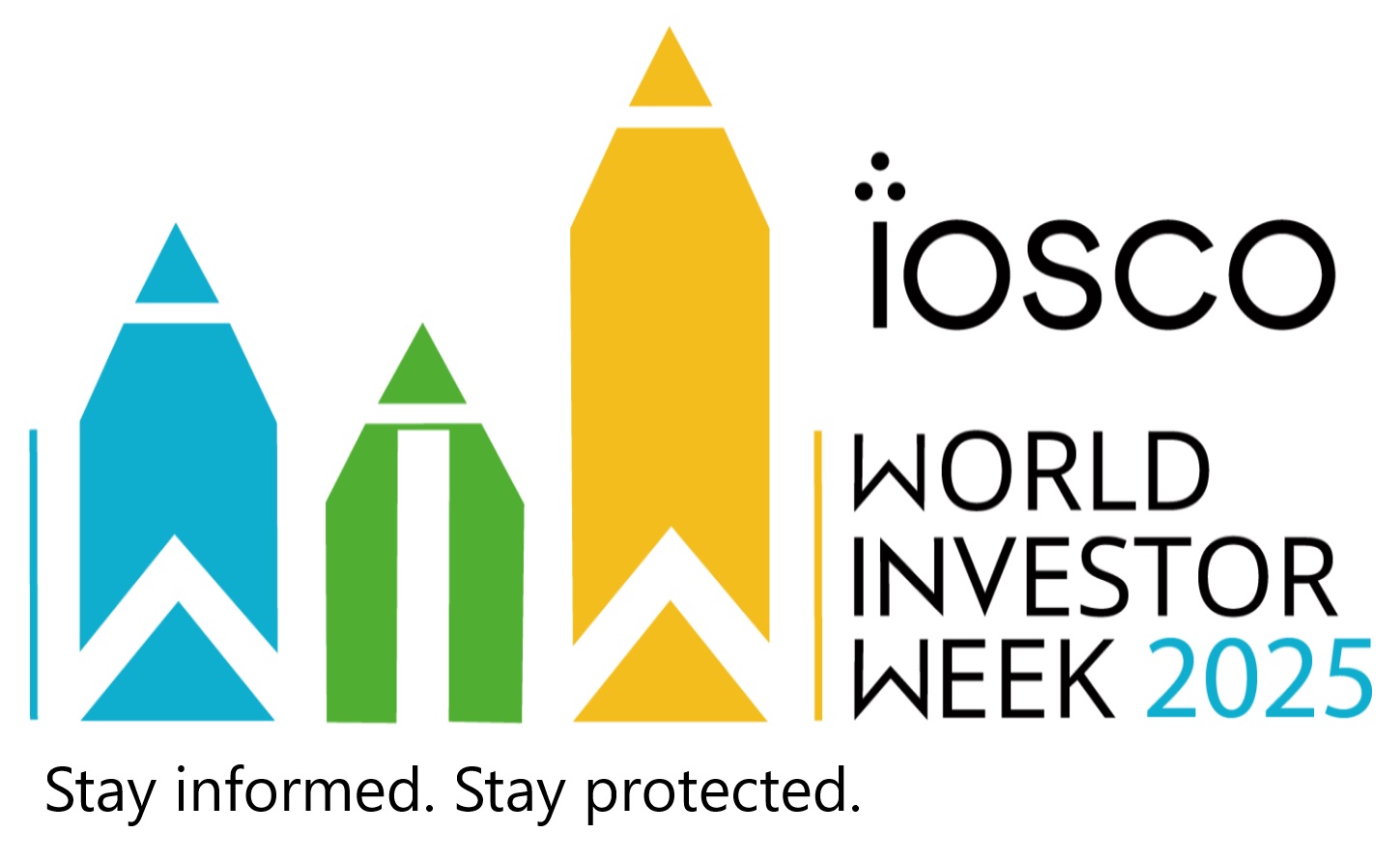
World Investor Week is a global campaign promoted by the International Organization of Securities Commissions (IOSCO) to raise awareness about the importance of investor education and protection.
The Securities and Exchange Commission's Office of Investor Education and Assistance (national coordinator), Financial Industry Regulatory Authority, Securities Investor Protection Corporation, Commodity Futures Trading Commission, National Futures Association, North American Securities Administrators Association and supporters work together with interested government agencies, localities, and organizations to promote and organize World Investor Week and its goals in the United States.
Program Highlight
- Thrift Savings Plan program for service members and federal employees (57 minute video)
Key Investing Terms
An informed investor makes better investing decisions and understands how to better protect themselves against the latest investment scams. Stay informed. Stay protected.
- Asset Allocation
Asset allocation involves dividing your investments among different assets, such as stocks, bonds, and cash. By including asset categories with investment returns that move up and down under different market conditions within a portfolio, you may be able to protect your portfolio against significant losses.
Learn more about Asset Allocation (Investor.gov article: Asset Allocation, Diversification, and Rebalancing 101)
- Diversification
Diversification is a strategy that can be neatly summed up as "Don't put all your eggs in one basket." The practice of spreading money among different investments to reduce risk is known as diversification. By picking the right group of investments, you may be able to limit your losses and reduce the fluctuations of investment returns without sacrificing too much potential gain.
Learn more about Diversification (Investor.gov article: Asset Allocation, Diversification, and Rebalancing 101)
- Rebalancing
Rebalancing is what you do to bring your portfolio back to your original asset allocation mix. You may need to rebalance over time because some investments will grow faster than others. By rebalancing, you ensure that your portfolio does not overweight a particular asset category, and you’ll return your portfolio to a comfortable level of risk.
Learn more about Rebalancing (Investor.gov article: Asset Allocation, Diversification, and Rebalancing 101)
- Index Fund
An index fund is a type of mutual fund or ETF that seeks to track the returns of a market index. A market index measures the performance of a “basket” of securities (like stocks or bonds), which is meant to represent a sector of a stock market, or of an economy. Index funds can be a low-cost, tax-efficient and diversified way to invest in securities.
Learn more about Index Funds (Investor.gov article)
- EDGAR
The EDGAR (Electronic Data Gathering, Analysis, and Retrieval) database provides free public access to corporate information, allowing you to research a public company’s financial information and operations by reviewing the filings the company makes with the SEC. You can also research information provided by mutual funds (including money market funds), exchange-traded funds (ETFs), and variable annuities.
Learn more about Using EDGAR to Research Investments (Investor.gov article)
- Trusted Contact
A trusted contact is a person that you authorize your brokerage firm to contact in limited circumstances, such as if your broker has trouble reaching you or has a reasonable belief that your account may be exposed to possible financial exploitation. Naming someone as a trusted contact does not give that person any authority to act on your behalf, execute transactions or engage in activity in your account.
Learn more about Trusted Contacts (Investor.gov glossary page, video, and quiz)
- Relationship Investment Scam
In a relationship investment scam, scammers reach out online or through text messages, attempting to build trust through friendship or a romantic connection to convince you to put money into phony investments. Relationship investment scams are called various names, including romance scams, financial grooming scams, and “pig butchering” scams.
Learn more about Relationship Investment Scams (Investor.gov article)





